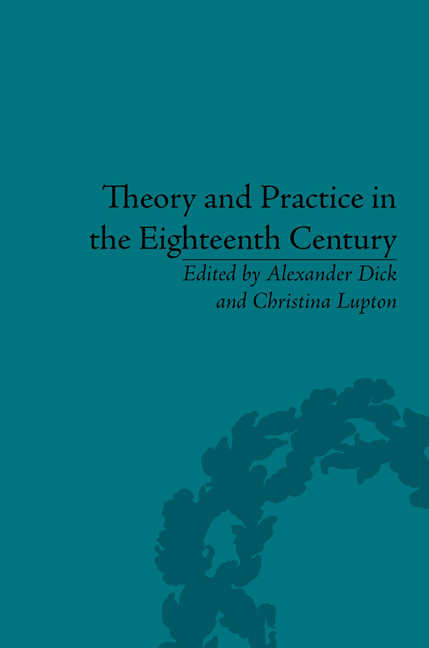Book contents
- Frontmatter
- CONTENTS
- Notes on Contributors
- Introduction
- I Writing Philosophy
- II Reading Hume
- 5 Preposterous Hume
- 6 Aesthetic Sensibility and the Contours of Sympathy Through Hume's Insertions to the Treatise
- 7 David Hume and Jane Austen on Pride: Ethics in the Enlightenment
- 8 Hume, Religion, Literary Form: Dialogues Concerning Natural Religion
- III Thinking Literature
- Notes
- Works Cited
- Index
7 - David Hume and Jane Austen on Pride: Ethics in the Enlightenment
from II - Reading Hume
- Frontmatter
- CONTENTS
- Notes on Contributors
- Introduction
- I Writing Philosophy
- II Reading Hume
- 5 Preposterous Hume
- 6 Aesthetic Sensibility and the Contours of Sympathy Through Hume's Insertions to the Treatise
- 7 David Hume and Jane Austen on Pride: Ethics in the Enlightenment
- 8 Hume, Religion, Literary Form: Dialogues Concerning Natural Religion
- III Thinking Literature
- Notes
- Works Cited
- Index
Summary
David Hume and Jane Austen would, on the face of it, appear to have little in common, unless we take into account the sojourn of each in eighteenth-century Britain. In fact, their lives barely coincided, for Hume left this world a scant eight months after Austen had entered it. He was an empiricist philosopher, probably an atheist. She was a novelist and a clergyman's daughter. Attempts at comparison appear unpromising on those grounds alone. Hume was, after all, sometimes regarded as The Great Infidel, the title of a recent biography. Austen was a believer, further buttressed in respectability by clerical and religious relations who burned her more revealing letters and represented her, repeatedly and in print, as a kindly old maid, humble and placid, contented with her domestic duties, having taken up writing as a kind of genteel alternative to darning socks. The whitewash job did not begin to fade until the latter half of the twentieth century. This conventional image of Jane Austen is one that would appear entirely incompatible with infidels both great and small, and it is the falsity of that purposely promulgated version of Austen that prompts the contrast to which I have initially called attention. It has been argued more effectively, by those less inclined to relegate Austen to saccharine respectability, that the works of Jane Austen are best understood as deriving from the sceptical traditions of the Enlightenment. Austen's constant predilection as a writer for ‘stick[ing] to the observable’, in the words of Peter Knox-Shaw, suggests an affinity for the empirical method. Indeed, Knox-Shaw goes further and proposes that if Hume's Treatise of Human Nature ‘is less a scientific study of mankind than a philosophy of science with an attached discourse on humanity that is consistent in principle with it, the same sort of consistency could be claimed for other discourses, including fictional ones’.2 The claims made in this paper are more specific, aligning the moral perspective and moral reasoning presented in Austen's work with those of David Hume.
Because it focuses principally on human character and human interaction, Austen's work has been the subject of ethical analyses by philosophers and literary critics alike.
- Type
- Chapter
- Information
- Theory and Practice in the Eighteenth CenturyWriting Between Philosophy and Literature, pp. 123 - 138Publisher: Pickering & ChattoFirst published in: 2014



